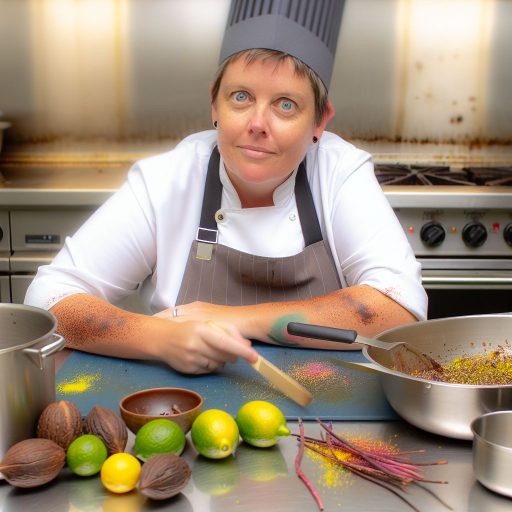Overview of the Event Planning Industry in Australia
The event planning industry in Australia plays a crucial role in various sectors.
From corporate gatherings to weddings, event planners create unforgettable experiences.
Growth and Demand
The demand for professional event planners continues to rise in Australia.
Businesses often seek skilled planners to enhance their corporate image.
Additionally, personal events benefit from expert organization and creativity.
Key Sectors within Event Planning
Event planning encompasses several key sectors in Australia.
- Corporate Events: seminars, conferences, and workshops.
- Social Events: weddings, birthdays, and anniversaries.
- Public Events: festivals, community gatherings, and exhibitions.
Essential Skills and Expertise
Successful event planners possess a diverse skill set.
Strong organizational abilities are essential for managing multiple tasks.
Excellent communication skills help in coordinating with clients and vendors.
Additionally, creativity is vital for developing unique event concepts.
The Impact of Technology
Technology significantly influences the event planning landscape in Australia.
Social media platforms enhance event promotion and engagement.
Event management software streamlines planning processes and logistics.
Furthermore, virtual and hybrid events have gained popularity in recent years.
Challenges Facing Event Planners
While rewarding, event planning also presents unique challenges.
Your Personalized Career Strategy
Unlock your potential with tailored career consulting. Get clear, actionable steps designed for your success. Start now!
Get StartedBudget constraints can limit creative options for planners.
Moreover, adapting to changing regulations requires agility and foresight.
Finally, competition in the industry remains intense, demanding continual improvement.
Key Responsibilities and Roles of Event Planners
Understanding Client Needs
Event planners begin by identifying the client’s objectives.
They conduct detailed consultations to gather important information.
Furthermore, they clarify the vision and expectations from the event.
Budget Management
Budget management is a crucial responsibility of event planners.
They create detailed budgets to avoid unexpected expenses.
Additionally, they negotiate with vendors to secure quality services at lower prices.
Venue Selection
Choosing the right venue significantly impacts the event’s success.
Event planners evaluate potential venues based on client requirements.
They consider location, capacity, and available amenities during selection.
Vendor Coordination
Coordinating with vendors is essential for seamless operations.
Event planners establish relationships with caterers, decorators, and AV technicians.
Stand Out with a Resume That Gets Results
Your career is worth more than a generic template. Let us craft a resume and cover letter that showcase your unique strengths and help you secure that dream job.
Get HiredThey ensure that each vendor understands their role and responsibilities.
Timeline Creation
Creating a detailed timeline is a fundamental task for event planners.
This timeline outlines all critical deadlines for the event.
Moreover, planners communicate this timeline to all stakeholders involved.
Marketing and Promotion
Marketing and promotion enhance event visibility.
Event planners develop marketing strategies to attract attendees.
They use social media, email campaigns, and word-of-mouth effectively.
On-Site Management
On-site management ensures the event runs smoothly.
Event planners oversee all activities and address any arising issues.
They work closely with staff to coordinate setup and tear-down processes.
Feedback and Evaluation
Some event planners collect feedback after the event concludes.
This feedback helps assess the event’s success and areas for improvement.
Additionally, they use this information to enhance future events.
The Importance of Understanding Client Needs and Objectives
Establishing Clear Communication
Effective communication forms the foundation of successful event planning.
Transform Your LinkedIn for Maximum Impact
Elevate your professional brand with a LinkedIn profile that attracts recruiters, showcases your expertise, and maximizes opportunities. Stand out in your industry with a profile built for success.
Boost ProfilePlanners must actively listen to their clients.
Understanding client expectations helps tailor the event to their vision.
This dialogue fosters a collaborative relationship.
Moreover, it allows for the clarification of any uncertainties.
Identifying Objectives
Every event has specific goals that shape its direction.
Event planners must identify these objectives early on.
Whether it’s brand awareness, fundraising, or team building, clarity is crucial.
These objectives guide decision-making throughout the planning process.
Consequently, they help in measuring the event’s success post-completion.
Personalizing the Experience
Each client is unique, and their events should reflect that individuality.
Event planners should gather detailed information about their client’s preferences.
This includes theme ideas, venue choices, and catering options.
Furthermore, understanding the audience enhances the overall experience.
Customized elements create memorable moments for attendees.
Budget Considerations
Budget constraints play a significant role in event planning.
Clients often have predefined financial parameters for their events.
Understanding these limitations allows planners to allocate resources effectively.
It also helps in recommending suitable options within the budget.
Ultimately, this reinforces the planner’s value to the client.
Responding to Feedback
Soliciting feedback throughout the planning process is vital.
This approach fosters continuous improvement and innovation.
Clients may have changing priorities as the event date approaches.
Being adaptable ensures a seamless experience for everyone involved.
Moreover, it demonstrates a commitment to client satisfaction.
Gain More Insights: Post-Pandemic Hospitality: What the Future Holds for Tourism Careers in Australia
Creating Unique Themes and Concepts for Events
Understanding Client Vision
Event planners begin by understanding the client’s vision and preferences.
This step establishes the foundation for creating a memorable experience.
They engage in discussions to explore themes that resonate with the client.
Listening to the client’s ideas fosters collaboration and creativity.
Researching Current Trends
Event planners research the latest trends in the industry.
This ensures that the event concepts are fresh and relevant.
They analyze popular themes and successful past events for inspiration.
Utilizing social media and event platforms keeps planners informed.
Developing a Unique Theme
Once a direction is set, planners craft a unique theme for the event.
This theme serves as the anchor for all planning aspects.
Creating visuals, colors, and styles that align with this theme enhances coherence.
Moreover, a well-developed theme captivates the attendees’ attention.
Incorporating Local Culture
Australia offers a rich cultural backdrop for event themes.
Planners often integrate local traditions and elements to create authentic experiences.
Incorporating Australian artistry or cuisine adds a unique twist to events.
This strengthens the connection between attendees and the location.
Collaboration with Vendors
Collaborating with vendors enables planners to bring their themes to life.
Suppliers, decorators, and caterers play vital roles in this process.
Effective communication ensures that everyone is aligned with the overarching concept.
Such collaboration can elevate the quality of the final execution.
Feedback and Refinement
Planning is an iterative process requiring feedback for improvement.
Event planners regularly share ideas with the client for input.
This ensures that the created concept meets the client’s expectations.
Making adjustments based on feedback enhances overall satisfaction.
Delve into the Subject: Sustainable Tourism: Careers in Australia’s Eco-Friendly Travel Industry
The Impact of Local Culture and Traditions on Event Planning
Embracing Indigenous Heritage
Event planners in Australia increasingly incorporate Indigenous cultural elements.
This practice fosters respect and recognition for traditional practices.
Utilizing Indigenous art, dance, and storytelling enhances event authenticity.
Moreover, it creates a unique experience for attendees.
Celebrating Local Festivals
Many events in Australia align with popular local festivals.
Events often embrace themes from festivals like the Sydney Festival and the Adelaide Fringe.
These celebrations connect communities through shared cultural experiences.
Furthermore, they attract diverse audiences, enhancing engagement.
Utilizing Regional Venues
Choosing venues that reflect local culture enriches events.
Event planners often select locations with historical significance or natural beauty.
This choice supports local economies and promotes tourism.
Additionally, unique venues offer distinctive backdrops for memorable experiences.
Incorporating Local Cuisine
Food plays a vital role in Australian events.
Event planners highlight regional cuisines to showcase Australia’s culinary diversity.
This approach introduces guests to local flavors and traditions.
Furthermore, catering with locally sourced ingredients supports sustainability.
Engaging with Local Communities
Collaboration with local communities enhances event success.
Event planners establish partnerships with local artists and businesses.
This engagement fosters community pride and participation.
Additionally, it creates a sense of belonging among attendees.
Explore Further: Starting a Career in Eco-Tourism: Opportunities for Young Professionals in Australia
Collaboration with Vendors and Suppliers for Successful Events
Building Strong Relationships
Event planners thrive on strong relationships with vendors.
These connections create a network of support for every event.
Trust between planners and suppliers enhances communication.
Additionally, it fosters quick problem resolution.
Choosing the Right Vendors
Choosing suitable vendors is crucial for event success.
Planners often evaluate vendors based on their reputation.
They also consider the quality of their services.
Furthermore, previous client feedback helps in decision-making.
Negotiating Contracts
Contract negotiation requires careful consideration.
Event planners must ensure clear terms and expectations.
This protects both parties from misunderstandings.
Moreover, it establishes a long-term working relationship.
Coordination of Logistics
Logistics coordination is vital for seamless event execution.
Planners work closely with vendors to schedule deliveries.
They also ensure that services align with event timelines.
Additionally, clarity in logistics prevents last-minute surprises.
Feedback and Reviews
Post-event feedback is essential for continuous improvement.
Planners gather input from vendors and suppliers alike.
This helps identify areas needing enhancement.
Subsequently, it aids in refining future events.
Discover More: Aussie Hospitality Careers: Top Tourism Jobs in High Demand

Utilizing Technology and Social Media in Event Promotion
Embracing Digital Tools
Event planners increasingly embrace digital tools to enhance event promotion’s effectiveness.
They use platforms like Eventbrite and Facebook Events to reach larger audiences.
Moreover, these tools streamline the ticketing process and provide analytics.
Leveraging Social Media Platforms
Social media platforms offer unparalleled opportunities for event marketing.
Instagram and TikTok allow for vibrant visual storytelling, attracting potential attendees.
Event planners craft eye-catching posts and interactive stories to engage users.
Creating Engaging Content
Content creation is crucial in capturing audience interest and increasing engagement.
Event planners utilize videos, infographics, and blog posts as promotional materials.
Additionally, user-generated content fosters a sense of community.
Targeting the Right Audience
Utilizing data analytics helps planners understand their target demographic better.
They can tailor promotions effectively using insights gathered from previous events.
Ultimately, this approach leads to higher attendance rates and audience satisfaction.
Building Brand Partnerships
Collaborating with influencers and brands amplifies promotional efforts.
Event planners identify key influencers aligned with their event theme.
By partnering with these individuals, they can expand their reach considerably.
Measuring Success
Analyzing the outcomes of promotional campaigns is essential for continuous improvement.
Event planners track metrics like engagement rates, ticket sales, and social media reach.
These insights help refine strategies for future events.
Case Studies of Memorable Events Planned in Australia
Corporate Retreats by Eventive Solutions
Eventive Solutions organized a corporate retreat for TechCorp in Sydney.
This event aimed to strengthen team collaboration and boost morale.
The planners curated unique team-building activities along the beautiful coastline.
Participants enjoyed kayaking, beach volleyball, and group workshops.
Moreover, the event concluded with a gala dinner featuring local cuisine.
Feedback revealed high satisfaction and a renewed sense of unity within the teams.
Cultural Festivals: The Melbourne Arts Festival
The Melbourne Arts Festival showcases diverse talents and cultures each year.
Event planners collaborated with local artists and communities to create vibrant experiences.
This festival features live performances, art exhibitions, and food stalls.
In addition, workshops engage attendees in self-expression through various mediums.
This event not only entertains but also enriches the cultural landscape of Melbourne.
It fosters community spirit and highlights the importance of the arts.
Weddings by Blissful Events
Blissful Events specializes in creating unforgettable weddings across Australia.
One spectacular wedding took place in a vineyard in the Hunter Valley.
The couple emphasized a rustic theme, integrating natural elements and chic decor.
Event planners ensured every detail met the couple’s vision and preferences.
They coordinated with local suppliers for exquisite catering and floral arrangements.
Guests left with cherished memories, celebrating love amidst breathtaking landscapes.
Sporting Events: The Sydney Marathon
The Sydney Marathon attracts thousands of runners and spectators annually.
Event planners orchestrate logistics, ensuring a seamless experience for participants.
This includes managing routes, hydration stations, and entertainment checkpoints.
Furthermore, community engagement is vital, with local businesses supporting the event.
Runners appreciate the scenic views of the Sydney Opera House and Harbour Bridge.
The event fosters a sense of community while promoting health and fitness.
Exhibitions: The Australian International Motor Show
The Motor Show highlighted the latest automotive innovations and technologies.
Event planners collaborated with manufacturers, ensuring impactful displays and demos.
Visitors enjoyed interactive experiences, such as test drives and workshops.
Feedback indicated high engagement levels and excitement about the automotive industry.
This event became a hub for enthusiasts, developers, and the general public.
It showcases Australia’s commitment to innovation in transport and engineering.
Challenges Faced by Event Planners and Strategies to Overcome Them
Understanding the Challenges
Event planners often encounter various challenges in their work.
Budget constraints frequently limit the options available for event execution.
A high level of competition in the industry makes differentiation essential.
Technology also poses challenges as it continues to evolve rapidly.
Furthermore, client expectations often shift, requiring adaptability.
Strategies for Overcoming Challenges
Developing a clear budget is crucial for effective planning.
Effective communication with clients helps align expectations from the start.
Utilizing technology for event management enhances efficiency and organization.
Networking with industry professionals fosters collaboration and idea exchange.
Lastly, continuous learning keeps planners up-to-date with trends.
Budget Management Techniques
Creating a detailed budget allows planners to allocate resources wisely.
Identifying priority areas helps in focusing spending where it counts.
Negotiating with vendors can yield savings and better deals.
Client Relationship Building
Regular check-ins with clients ensure clarity throughout the planning process.
Providing options allows clients to make informed decisions.
Soliciting feedback creates a more tailored experience for future events.
Leveraging Technology
Event management software streamlines planning and execution tasks.
Social media platforms can enhance event promotion and engagement.
Virtual event tools expand reach and accessibility for attendees.
Networking for Success
Joining professional associations provides valuable resources and insights.
Attending industry events fosters connections and partnerships.
Collaborating with other professionals can enhance service offerings.
Embracing Continuous Learning
Investing in professional development ensures planners remain competitive.
Staying informed about industry trends helps in anticipating client needs.
Participating in workshops and webinars can enhance skill sets.
Future Trends in Event Planning: Sustainability and Innovation
Shifting Focus Towards Sustainability
Event planners are increasingly prioritizing sustainable practices.
They aim to reduce waste and carbon footprints.
Moreover, eco-friendly venues are becoming more popular.
Planners now consider sourcing local materials and products.
This choice supports local economies and reduces transportation impacts.
Innovative Approaches to Engagement
Technology is revolutionizing event experiences.
Virtual and hybrid events are on the rise.
This offers flexibility and broadens audience reach.
Furthermore, interactive installations enhance participant engagement.
Augmented reality (AR) and virtual reality (VR) are becoming common tools.
Community Involvement and Personalization
Customizing events to fit local cultures is gaining traction.
Planners now seek input from community members.
This approach fosters a sense of inclusion and belonging.
Moreover, personalized experiences resonate better with attendees.
Using data analytics helps optimize these tailored elements.
Emphasizing Well-being and Safety
Health and safety remain top priorities for planners.
Implementing robust safety measures builds trust with attendees.
Additionally, wellness activities are increasingly integrated into events.
Such activities may include mindfulness sessions and healthy catering options.
This focus enhances attendee satisfaction and overall experiences.
Additional Resources
Progress and prospects for event tourism research – ScienceDirect
Dwane Goodman – Chief Operating Officer – Gema Group Pty Ltd …




